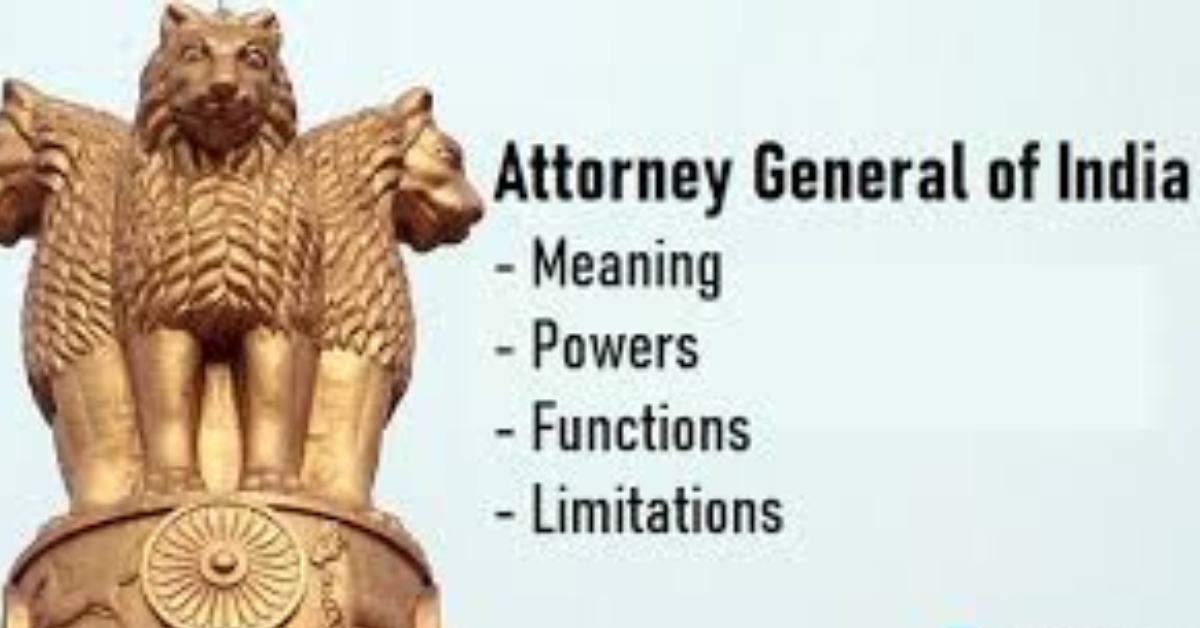The Attorney General of India (AGI) is the highest law officer in the country and serves as the chief legal advisor to the Government of India. Appointed by the President of India, the Attorney General plays a crucial role in legal matters, constitutional interpretation, and government litigation.
In this blog, we will explore the powers, responsibilities, tenure, and limitations of the Attorney General of India under the Indian Constitution (Article 76).
Who is the Attorney General of India?
The Attorney General of India is a constitutional authority appointed under Article 76 of the Indian Constitution. The AGI is responsible for representing the Union Government in the Supreme Court and providing legal advice on various matters.
Appointment of the Attorney General
- Appointed by the President of India on the advice of the Union Government.
- Must be qualified to be appointed as a judge of the Supreme Court.
- Holds office at the pleasure of the President—there is no fixed tenure.
Qualifications Required for the Attorney General
According to Article 76(1), a person must:
- Be a citizen of India.
- Have at least five years of experience as a judge of a High Court or ten years as an advocate of a High Court.
- Be an eminent jurist recognized for expertise in legal matters.
Powers and Responsibilities of the Attorney General
The Attorney General of India has multiple responsibilities related to legal advice, litigation, and representation of the government in courts.
1. Legal Advisor to the Government of India
- Advises the President, Prime Minister, and Union Government on legal and constitutional matters.
- Provides opinions on issues related to laws, treaties, and constitutional interpretation.
2. Representation in Courts
- Represents the Government of India in the Supreme Court and High Courts.
- Defends the Union Government in important constitutional cases, disputes, and public interest litigations (PILs).
3. Appearances Before the Supreme Court
- As per Article 143, the AGI represents the government when the President seeks the Supreme Court’s advisory opinion.
- Defends central laws if challenged on constitutional grounds.
4. Right to Participate in Parliament
- Under Article 88, the AGI can attend and speak in Parliament and its committees but cannot vote.
- Assists Parliament in legal discussions and interpretation of laws.
5. Role in Contempt Cases
- The AGI can initiate contempt proceedings in the Supreme Court or High Courts against individuals who disobey court orders.
Limitations and Restrictions on the Attorney General
Despite being the chief legal officer, the Attorney General of India faces certain limitations to ensure fairness and prevent conflicts of interest.
1. No Private Practice Against the Government
- The AGI cannot advise or represent any client against the Government of India.
2. Not a Government Employee
- Unlike government officials, the AGI is not a full-time government servant but an independent constitutional authority.
3. No Fixed Tenure
- The AGI serves at the pleasure of the President, meaning they can be removed at any time without a formal process.
4. Restrictions on Political Involvement
- The AGI should remain neutral and avoid active participation in political activities.
Attorney General vs. Solicitor General vs. Advocate General
| Position | Appointed By | Responsibilities |
|---|---|---|
| Attorney General of India (AGI) | President of India | Chief legal advisor & represents the government in the Supreme Court |
| Solicitor General of India | Appointed by the President | Assists the AGI in legal matters & government litigation |
| Advocate General of a State | Governor of the State | Legal advisor for state government & represents it in High Court |
The Attorney General is the topmost legal officer, whereas the Solicitor General and Additional Solicitor Generals assist in handling legal cases of the government.
Famous Attorneys General of India
Several eminent legal experts have served as the Attorney General of India:
| Attorney General | Term | Notable Contributions |
|---|---|---|
| M.C. Setalvad | 1950-1963 | First AGI, helped in framing India’s legal framework |
| Nani Palkhivala | 1977-1979 | Strong advocate of fundamental rights |
| Milon K. Banerji | 1992-1996, 2004-2009 | Played a role in constitutional interpretations |
| Goolam E. Vahanvati | 2009-2014 | Key advisor in UPA government |
| K.K. Venugopal | 2017-2022 | Represented government in major constitutional cases |
(The current Attorney General is subject to change, check official sources for the latest update.)
Challenges Faced by the Attorney General
- Political Pressure – The AGI must maintain independence despite being appointed by the government in power.
- Handling Controversial Cases – Defending government actions in sensitive constitutional cases can be difficult.
- Public Perception – The AGI must ensure that their legal advice does not appear biased toward the ruling party.
- Heavy Workload – Managing multiple high-profile cases in the Supreme Court and High Courts can be challenging.
Conclusion
The Attorney General of India plays a crucial role in upholding the Constitution and providing legal guidance to the government. As the highest law officer, the AGI ensures that the Union Government functions within the legal framework and defends its policies in the judiciary.
While the Attorney General holds immense power, they also face several restrictions and challenges to maintain neutrality. Their role is essential in ensuring the smooth functioning of India’s legal and constitutional system.
Would you like to know more about other top legal positions in India? Let us know in the comments! 🚀⚖️

